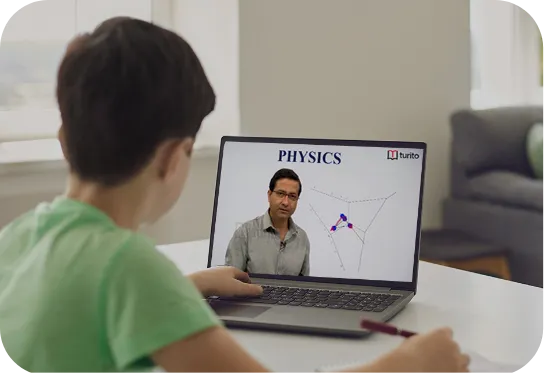ACTIVITY:
Indicate the reason or purpose (inform, persuade, apology, describe or entertain) for the following.
The first one is done for you as an example.
- Notes when studying 1. Inform 2. Explain
- Notes to friends, teachers, relatives 1._____ 2_____3______4________
- Answers on a worksheet, homework, or test 1________
- Birthday and holiday notes to family and friends 1_____ 2______
- Graffiti 1_________
- Artwork 1________
- Directions to your house so a friend can visit 1_________
- Apology notes 1___________ 2__________
- Notes when studying 1. Inform 2. Explain
- Notes to friends, teachers, relatives 1. Inform 2. Persuade 3. Apology 4. Describe
- Answers on a worksheet, homework, or test 1. Inform
- Birthday celebrations and holiday notes to family and friends. 1.Persuade 2. Entertain
- Graffiti 1. Entertain
- Artwork 1. Entertain
- Directions to your house so a friend can visit. 1. Explain
- Apology notes 1. Persuade 2. Describe
Having discussed students’ purpose of writing in above activity, now let’s discuss an author’s purpose of writing.
- Are you engaged in reading a book or a novel?
Sometimes, they are so interesting that we read them continuously.
- Have you ever wondered how an author engages their audience/readers?
That is possible through a concept called author’s purpose.
Let’s learn more about it.
What is an author’s purpose?
An author’s purpose is his/her reason or intent with what they write.
An author’s purpose is his/her reason or intent with which they write.
An author’s purpose may be any of the following:
- To amuse the reader.
- To persuade the reader.
- To inform the reader.
- To describe a condition.
- To explain something.
An author’s purpose is seen in the way he writes about a topic.
For example, if he/she wants to amuse the readers, he/she uses jokes or anecdotes in his/her writing.
Why do authors write a story?
- Persuade: Authors try to get you to do something or make you believe what they say.
- Inform: Authors give you information about a topic.
- Entertain: They tell us a story that we enjoy reading.
- Describe: Authors want us to visualize or experience a person, place or thing.
- Explain: They tell us how to do something or how something works.
Let’s discuss in detail:
INFORM:
Authors want to give information.
Examples:
- Textbooks
- Non-fiction books
- Essays
- Newspaper articles
- Directions
ENTERTAIN:
Authors want to amuse the readers.
Examples:
- Fiction stories
- Poems
- Songs
- Plays
- Jokes
- Narratives
PERSUADE:
Authors want you to do or believe something.
Examples:
- Advertisements
- Persuasive letters
- Opinions
- Campaign speeches
DESCRIBE:
Authors want you to visualize or experience a person, place or thing.
Examples:
- Descriptions
- Essays
- Imagery
EXPLAIN:
Authors want to tell you how to do something or how something works.
Examples:
- Instructions
- Directions
- Steps
- Procedures
- How-to-do recipes
Tips or ideas to inform:
- Write a letter informing about your daily routine.
- Describing the items of catalogues or magazines or classrooms.
- Design a brochure containing facts about a subjects like history, geography, science, mathematics etc.
- Prepare a recipe and outline the steps needed to make the varities of dishes
- Write a news report on some special events in the school or the community.
Tips or ideas to create entertainment:
- Create a fun-story.
- Create a book of jokes.
- Describe a jovial event that made you to burst into laughter.
- Write a fun-poem some animals.
- Write a very short description on inanimate object in the classroom (i.e. – the stapler, the dry erase markers, etc.).
Tips or ideas to persuasive writing
- Make a radio advertisement to motivate people to purchase products.
- Draft a speech to encourage people to vote for you for school head-boy.
- Work with your team on a drama about a salesgirl trying to sell a reluctant buyer a costly item..
- Write an essay on new changes you would like to see and why it should be implemented
- Write a book review encouraging someone to read it.

Related topics
Exploring the World of Adjectives: Types, Usage, and Examples
What are Parts of Speech? Parts of speech determine words’ grammatical and semantic position in a sentence. Activity time The parts of speech are nouns, adverbs, conjunctions, pronouns, interjections, adjectives, articles, prepositions, and verbs. Identify the parts of speech of the underlined words in the following sentences. White- Adjective Big- Adjective Exciting- Adjectives New- […]
Read More >>Memoir Writing: Basic Elements, Structures, and Types
Memoir: A memoir is a narrative written from an author’s perspective about a particular facet of his/her own life. ‘Memoir’ word comes from the French word ‘memoire’, which means ‘memory’ or ‘reminiscence’. Example Night: Elie Wiesel gives an account of how he survived his teenage years at Auschwitz and Buchenwald concentration camps during World War […]
Read More >>Identification of Main Idea in Fiction and Non-fiction
Every story or paragraph or non-fictional text has at least one main idea. The MAIN IDEA is what the text is mostly about. (It is backed up or supported by SUPPORTING DETAILS) Before discussing how to find the main idea, we shall first look at TOPIC. Can you define a topic? A topic can be […]
Read More >>Writing an Article: Structure and Essential Tips
What is an article? Structure of Article Writing : Title : Draw the attention of readers with an attractive title and indicate the main topic of the article Introduction : Attract the reader’s attention with a sentence that gives a general presentation of the topic. Main Body : Between these sentences, the body should do […]
Read More >>Other topics







Comments: